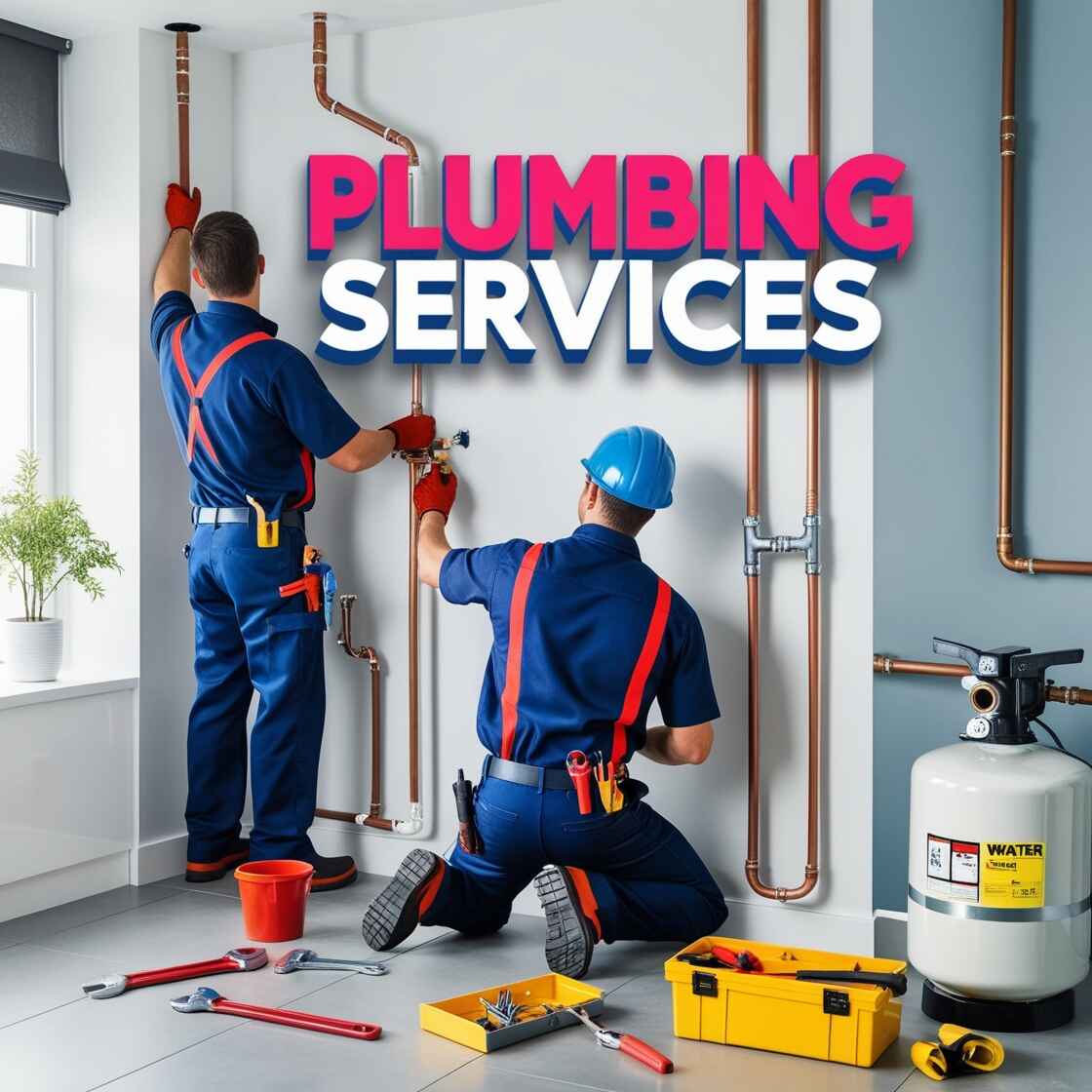When it comes to managing a commercial property, one of the most crucial yet often overlooked aspects is regular plumbing inspections. Understanding the importance of regular plumbing inspections for commercial properties and businesses can save you from unexpected headaches and costly repairs down the road. Routine inspections ensure that your plumbing systems are functioning efficiently, help you avoid expensive repairs, and maintain a safe and healthy environment for your tenants and customers.
Why Commercial Plumbing Inspections Are Important?
Commercial plumbing inspections are more than just a routine check—they are a proactive measure to maintain the health of your plumbing systems. Regular plumbing system checks help identify issues before they escalate into major problems. From detecting minor leaks to ensuring your plumbing systems are compliant with local regulations, these inspections play a pivotal role in the smooth operation of any commercial property. If you’re considering starting a plumbing business, you might also be interested in How Much Does It Cost to Start a Plumbing Business?
Avoid Costly Repairs and Water Damage
One of the significant benefits of regular plumbing inspections is the prevention of costly repairs and water damage. By identifying potential issues early, you can avoid the expense of emergency repairs and extensive water damage. Here’s how:
Identifying Hidden Leaks and Water Damage
Leaks aren’t always visible; they can occur within walls, beneath floors, or under concrete slabs. Regular inspections help detect these hidden leaks before they cause significant water damage. For instance, a small leak in a pipe can slowly erode the surrounding structure, leading to expensive repairs and potential safety hazards. Early detection through routine inspections ensures that such issues are addressed promptly, preserving the integrity of your property. For more on solutions to water pipe issues, see Water Pipe Leakage Solution.
Preventing Drainage Issues
Drainage issues can disrupt your business operations and lead to costly repairs. Inspections help to ensure that your drainage systems are functioning correctly and can identify potential blockages or faults before they cause major problems. For example, regular maintenance can prevent drain clogs in kitchen or bathroom fixtures, which could otherwise lead to water backups and unpleasant odors. Check out our guide on the Ultimate Guide to Emergency Plumbing: Tips, Tricks, and Solutions for more tips on handling plumbing emergencies.
Ensure Health and Safety Standards
Maintaining health and safety standards is crucial for any commercial property. Regular plumbing inspections play a key role in ensuring that these standards are met.
Ensuring Water Heater Efficiency
Your water heater is a critical component of your plumbing system. Regular inspections ensure that it operates efficiently, reducing the risk of unexpected breakdowns and safety hazards. For instance, an outdated or malfunctioning water heater can lead to inconsistent water temperatures or even pose a fire risk. Regular checks help in maintaining the efficiency and safety of your water heater. You might also find our article on How to Value a Plumbing Business useful if you’re in the industry.
Safeguarding Against Sewer Line Problems
Sewer line problems can be both inconvenient and hazardous. Routine inspections help detect issues like blockages or damage in your sewer lines before they escalate into serious problems. Addressing these issues promptly can prevent unpleasant backups and ensure that your property remains safe and hygienic. For tips on how to address various plumbing issues, visit Top 10 Plumbing Issues Santa Clarita Homeowners Face.
Improve Efficiency and Reduce Water Bills
Efficiency in plumbing systems directly impacts your operational costs. Regular inspections contribute to improving the overall efficiency of your plumbing system, which can lead to significant savings on water bills.
Enhancing Water System Efficiency
Optimizing your plumbing systems through regular inspections can enhance their efficiency. This includes ensuring that all fixtures, such as faucets and toilets, are functioning properly and not wasting water. For example, a leaky faucet may seem minor but can waste gallons of water over time, increasing your water bill. For more insights on plumbing efficiency, read our article on Tips to Maximize Sales and Revenue for Your Plumbing Business.
Optimizing Plumbing Systems
Routine plumbing checks allow for adjustments and repairs that optimize your plumbing systems. From upgrading outdated pipes to replacing faulty fixtures, regular maintenance ensures that your system operates at peak efficiency. This proactive approach can lead to substantial savings and more efficient use of water resources. For advice on selecting the best pipes for your plumbing needs, see What Are the Best Pipes for House Plumbing?.
Enhance Property Value and Longevity
Regular plumbing inspections not only maintain but also enhance the value and longevity of your property. Well-maintained plumbing systems contribute to the overall appeal and functionality of your commercial space.
Maintaining Property Value
Investing in regular plumbing inspections helps maintain and even increase the value of your property. Prospective buyers and tenants are more likely to be attracted to a property with a well-maintained plumbing system. For additional resources on property management, you might find How Plumbing Works in an Apartment Building helpful.
Extending Property Longevity
Regular inspections play a crucial role in extending the lifespan of your plumbing systems and the property itself. By addressing small issues before they become major problems, you preserve the overall condition of your property. This proactive approach ensures that your property remains in good shape for years to come. For more tips on maintaining your home, visit 10 Essential Tips to Bathroom Mold Prevention.
Ensuring Compliance with Regulations
Compliance with plumbing regulations is mandatory for commercial properties. Regular inspections help ensure that your property meets all local and national plumbing standards.
Understanding Plumbing Regulations
Plumbing regulations can be complex and vary by location. Regular inspections ensure that your plumbing systems comply with these regulations. For instance, replacing old lead pipes with copper or pvc pipe can be a requirement in many areas to ensure water safety and quality. If you’re curious about starting a plumbing business or its requirements, see Can You Start a Plumbing Business Without a License?
Avoiding Legal Issues and Fines
Non-compliance with plumbing regulations can lead to legal issues and fines. Regular inspections help you avoid these problems by ensuring that your plumbing systems are up to code. This not only protects your property but also your business from potential legal troubles. For more insights on emergency plumbing and legal aspects, see Should You Call a Plumber to Fix a Gas Leak?
Conclusion
In conclusion, the importance of regular plumbing inspections for commercial properties cannot be overstated. These inspections are essential for preventing costly repairs, ensuring safety, improving efficiency, and enhancing property value. By prioritizing routine plumbing checks, you invest in the long-term health and functionality of your property. For more information on related topics, read our other informative articles:
FAQs
What are regular plumbing inspections for commercial properties?
Regular plumbing inspections involve a thorough check of all plumbing systems within a commercial property to ensure they are functioning correctly. This includes examining pipes, drains, fixtures, and water heaters to identify any potential issues before they become major problems. The goal is to maintain the plumbing system’s efficiency and prevent costly repairs.
Why are plumbing inspections important for commercial properties?
Plumbing inspections are crucial for commercial properties because they help prevent costly repairs and water damage. Regular inspections ensure that plumbing systems operate efficiently, meet health and safety standards, and comply with regulations. This proactive approach can save money, enhance property value, and avoid plumbing emergencies.
How often should plumbing inspections be conducted in commercial properties?
It’s generally recommended to conduct plumbing inspections at least once a year for commercial properties. However, the frequency may vary depending on the property’s age, usage, and plumbing system complexity. High-traffic areas or properties with older plumbing systems may benefit from more frequent inspections.
What are the common issues detected during plumbing inspections?
Common issues detected during plumbing inspections include hidden leaks, drainage problems, inefficient water heaters, sewer line blockages, and non-compliance with plumbing regulations. Identifying these issues early can prevent significant damage and costly repairs.
How can regular plumbing inspections save money?
Regular plumbing inspections can save money by identifying and addressing minor issues before they escalate into major problems. This proactive approach helps avoid emergency repairs, reduces water waste, and improves system efficiency, which can lower utility bills and extend the lifespan of plumbing components.
What should I expect during a commercial plumbing inspection?
During a commercial plumbing inspection, a professional plumber will thoroughly examine all plumbing systems, including pipes, drains, fixtures, and water heaters. They will check for signs of leaks, blockages, and other issues, and may use specialized tools like cameras for a more detailed assessment. The plumber will then provide a report detailing their findings and any recommended repairs or maintenance.
Are there specific regulations that commercial plumbing systems must comply with?
Yes, commercial plumbing systems must comply with various local and national regulations, which can include standards for pipe materials, water conservation, and safety measures. Regular inspections help ensure that your plumbing systems meet these regulations and avoid potential legal issues or fines.
How can I find a qualified plumber for a commercial property inspection?
To find a qualified plumber for a commercial property inspection, look for licensed and experienced professionals who specialize in commercial plumbing. Check reviews, ask for recommendations from other businesses, and verify their credentials and insurance. A reliable plumber should provide a detailed inspection report and be able to address any concerns you may have.

